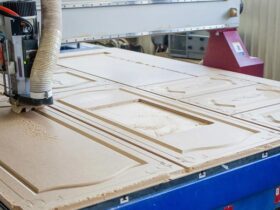When applying for a job, permanent or temporary, each self -respecting employer, is sure to instruct safety and fire safety, regardless of whether the accountant, or builder. We often grumble, why is it necessary? Really why? Labor protection inspectors often say that the safety instructions are written by our blood. And indeed it is. Statistics are inexorable. Since 1990, when no one has thought about safety precautions, there was a sharp jump in injuries, burns, and other serious damage received in production.
Since the beginning of the 90s and almost until 2002, production injuries with a fatal outcome have been stably high. 15 people per 100,000 workers. But starting in 2002, when measures to prevent injuries in production have intensified, this figure has significantly decreased to 9 people per 100,000 workers. It is clear with production. And how are things with domestic injuries? It is even worse here.
And all why? Yes, because we, starting to perform work at home, do not even think that non -compliance with the elementary safety rules can lead to injuries, and sometimes even to death.
Dear friends, if you are interested in ski tours with discounts, then follow the link. There you can find a lot of information about rest.
In this article we will tell you about safe methods when working with drywall. In the manufacture of drywall, gypsum, special cardboard, additives are used, which improve the quality of the material. When you cut drywall, the smallest particles of gypsum dust fall into your eyes and respiratory tract. It is necessary to protect them. Therefore, starting work, do not forget:
• protective glasses;
• respirator or mask;
• ventilate or ventilate the room;
• a special tool designed to work with drywall should be kept clean, to be serviceable;
• use the tool only for its intended purpose;
The walls, ceilings, partitions are sheathed with drywall. So, have to work on top. Staircase, stepladder should be working, stand on the floor, do not stagger.
When working, you have to use various power tools. The power tool must be serviceable, do not have bare wires and a faulty fork. If it provides for special protection, in no case do not remove it. Electric sockets should be with ground.
• Do not use home -made electrical carrying.
• When fixing guides for drywall, do not damage the hidden wiring. Better disconnect the electricity.
• Store the tool in places inaccessible to young children.
• Do not allow them to the places where work is carried out.
• Careless handling your tool, can lead to a child’s injury.
Remember! These, in general, are not difficult rules, will help to avoid injuries
You and your loved ones, or maybe they will save life.
Try to comply with safety regulations!!!








